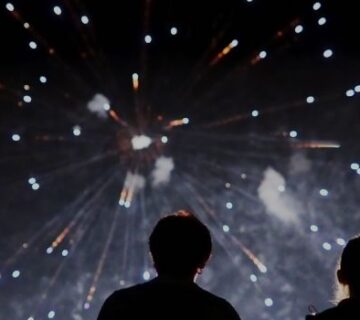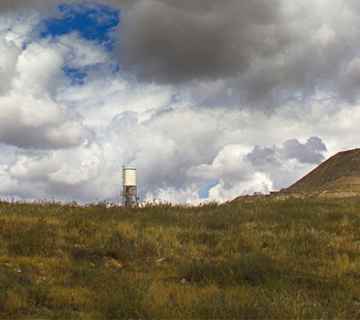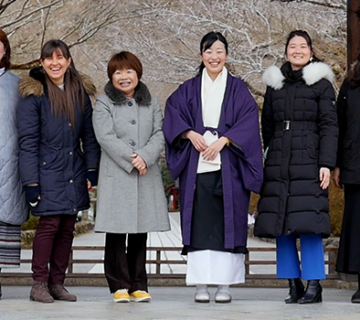“At a time when religion is being manipulated by extremists, the religious leaders gathered in Kyoto are showing the whole world that religious communities can indeed illuminate the path to peace when they work together”, stated Dr. Vendley, General Secretary of the World Conference of Religions for Peace (WCRP), during the conclusion of the 8th World Conference, which was attended by over 2,000 participants.
The 800 delegates, from more than 100 countries, were Buddhist, Christian, Hindu, Muslim, Jewish, Jain, Sikh, Shinto, Zoroastrian and Indigenous leaders. Among the Muslim representatives there were some highly important figures, such as the ex-president of Iran, Khatami and the Prince of Jordan, Hassan Talal. The head of the Jewish delegation was Rabbi David Rosen, president of the International Jewish Commission. The heads of the Catholic delegation were Japanese Cardinal Stephen Fumio Hamao, together with Bolivian Cardinal Julio Terrezas Sandoval.
Religious leaders from Iraq, South Korea, Sri Lanka and Sudan highlighted the Assembly’s unique capacity to bring together delegates from zones of conflict. Shiite, Sunni and Kurdish religious leaders from Iraq, presently in conflict in their country, stated in a common declaration: “We have dialogued with boldness, courage and trust. We now walk on this path of dialogue. God willing, we will reach a green line of peace for all of Iraq”. The Hindu and Buddhist representatives from Sri Lanka publicly shook hands heartily and demanded a cease-fire and the resumption of peace talks.
At the end of the Assembly the delegates adopted the Declaration’s twenty recommendations which “put religious communities at the centre of all efforts to confront violence in all its forms within our own communities”. The document is addressed not only to religious leaders, but also to governments and international organisations, in order to increase shared security through support, education and collaboration with, and among, religious communities.
The spiritual roots of dialogue amongst religions and their work for peace were at the centre of the message of Chiara Lubich, an honorary president of the WCRP, who was represented by an international delegation of the Focolare Movement. The president of the Movement put great emphasis on “love that unites”, “which each one of us, starting from ourselves, can give rise to in all our relationships”. Up to the point of “highlighting together, with reciprocal love, the presence of Someone who transcends us and who is infinitely greater than us”. “A new presence of God which leads to tolerance, forgiveness, peace, joy and which lights the flame of love which brings men in communion with each other, lights the path of existence and which cannot but penetrate everybody’s heart”.
Two sessions of the World Assembly highlighted the efforts of women and youth of different religions. More than 400 participants from 65 countries concluded the Religions for Peace Women’s Assembly, on August 25 with a Declaration affirming that “women of faith give strength and hope when all seems hopeless”.
The Religions for Peace Youth Assembly, who were gathered in Hiroshima from August 21 to 25, proclaimed in their own Declaration, “We choose hope, because it is the only way forward.”
The WCRP, World Conference of Religions for Peace, is the largest coalition of the world’s religious leaders and communities. Founded in 1970 it is based on the principle of a profound respect of religious diversities. It promotes cooperation to heal conflicts, build peace and advance sustainable development. These major periodical meetings above all favour reciprocal knowledge and dialogue.


 Italiano
Italiano Español
Español Français
Français Português
Português


